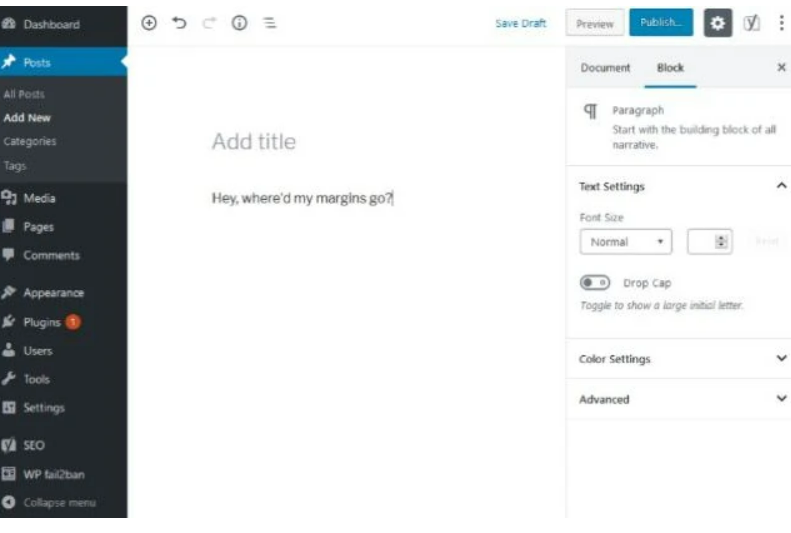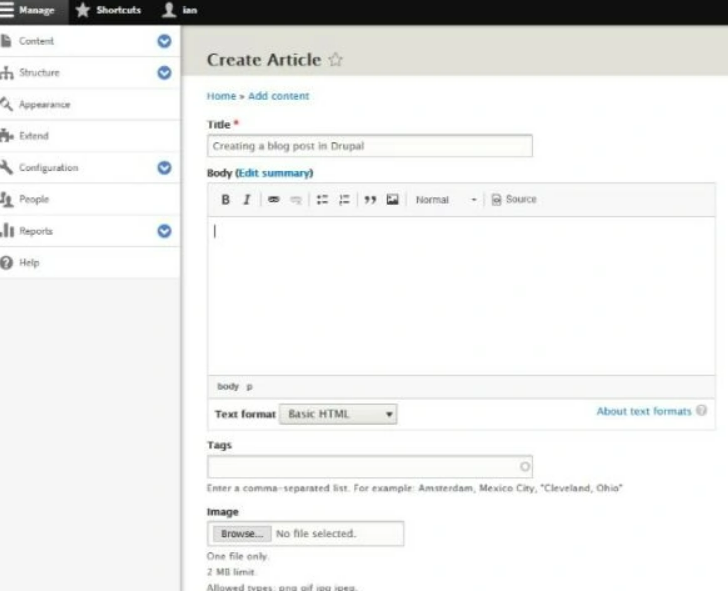In the vast landscape of content management systems (CMS), two titans reign supreme: WordPress and Drupal. Both offer powerful tools for creating and maintaining websites, but they have distinct features and cater to different user preferences. In this thorough analysis, we’ll explore the strengths and weaknesses of each platform, aiding you in making a well-informed decision about selecting the perfect CMS for your requirements.
Understanding Content Management Systems (CMS)
At the core of both WordPress and Drupal lies the concept of a content management system (CMS). A CMS provides a user-friendly dashboard where website owners can update and maintain their sites by adding content, design elements, special pages, and blog posts. This streamlined approach to website management simplifies the process of creating and editing website content, making it accessible to users of all skill levels.
Introducing WordPress and Drupal
WordPress: With tens of millions of websites worldwide running on it, WordPress is undeniably the most popular CMS on the market. It offers a wide range of themes and plugins, making it a versatile platform for various website needs. While WordPress excels in ease of use and popularity, it may lack the advanced customization options desired by some users.
Drupal: While not as ubiquitous as WordPress, Drupal is a long-standing open-source project known for its high degree of flexibility. Drupal’s approach resonates especially with web developers seeking a more streamlined process than what WordPress offers. While Drupal provides a sturdy framework for constructing intricate websites, its learning curve and technical emphasis might intimidate newcomers to website development.
Pros and Cons of WordPress and Drupal
Pros of WordPress:
- Free to use.
- Widely popular with a vast user base.
- Extensive library of themes and plugins for customization.
Cons of WordPress:
- Requires regular updates for security and performance.
- Prone to attracting hackers due to its popularity.
Pros of Drupal:
- Free to use.
- Offers an easier learning curve compared to WordPress for technical users.
- Provides a variety of visual themes for customization.
Cons of Drupal:
- Aimed primarily at technical users.
- Adding modules and themes can be challenging.
- Updates can be cumbersome and may require basic coding knowledge.
Ease of Use
WordPress:
Getting started with WordPress is relatively straightforward. Setting up WordPress is a breeze with most web hosts, as they typically offer one-click installations, making it a beginner-friendly option. Once installed, WordPress greets you with an intuitive admin panel, where you can effortlessly manage content, themes, and plugins. Customizing themes and adding content is a smooth experience, catering to users with diverse levels of technical expertise.

Drupal:
While Drupal can also be installed through most web hosts, its setup process may be more complex for novice users. Configuring databases and server settings may require technical know-how, making it less beginner-friendly compared to WordPress. Once installed, Drupal’s admin panel offers similar functionality for managing content, but its interface may be less intuitive for users unfamiliar with the platform.

Theme Design & Customization
WordPress:
With over 30,000 themes available, WordPress offers a vast selection for users to choose from. Installing themes is simple, and customization options are accessible through the WordPress dashboard. However, advanced customization may require knowledge of CSS, HTML, and PHP, limiting the extent of customization for novice users.
Drupal:
Drupal boasts approximately 2,800 themes, providing fewer options compared to WordPress. Installing themes may require FTP server setup, adding complexity to the process for inexperienced users. While theme customization is possible, it may involve more technical steps and require familiarity with server configurations.
Plugins & Modules
WordPress:
WordPress boasts an extensive collection of plugins, offering users over 50,000 options to enhance website functionality. Installing plugins is a straightforward process, and users have access to both free and paid options, ensuring compatibility with their specific needs.
Drupal:
Drupal utilizes modules to add functionality to websites, with options available for basic, advanced, and custom features. While Drupal offers fewer modules compared to WordPress plugins, it still provides essential tools for website customization and optimization. However, installing and configuring modules may require more technical expertise compared to WordPress plugins.
SEO Control
WordPress:
WordPress offers robust SEO capabilities, with plugins like Yoast and SEMrush providing comprehensive tools for optimizing website content. Users can easily edit meta tags, focus on keywords, and receive automatic analysis to improve their site’s SEO performance.
Drupal:
Drupal also offers SEO tools, although options may be more limited compared to WordPress plugins. Modules like XML sitemaps facilitate search engine indexing, while the Drupal SEO Checklist provides guidance for optimizing website content. While Drupal may not offer as many SEO features as WordPress, it still provides essential tools for improving search visibility.
Making Your Decision
In conclusion, both WordPress and Drupal offer unique strengths and cater to different user preferences. WordPress excels in ease of use, popularity, and extensive customization options, making it ideal for users seeking a user-friendly CMS with a vast ecosystem of themes and plugins. On the other hand, Drupal offers greater flexibility and customization capabilities, appealing to technical users who require advanced website functionality and scalability.
Ultimately, the choice between WordPress and Drupal depends on your specific needs, preferences, and technical expertise. If you prioritize ease of use and a wide selection of themes and plugins, WordPress may be the ideal choice for your website. However, if you require advanced customization and scalability, Drupal offers a robust platform for building complex websites.
Regardless of your choice, both WordPress and Drupal provide powerful tools for creating and maintaining websites, empowering users to unleash their creativity and achieve


